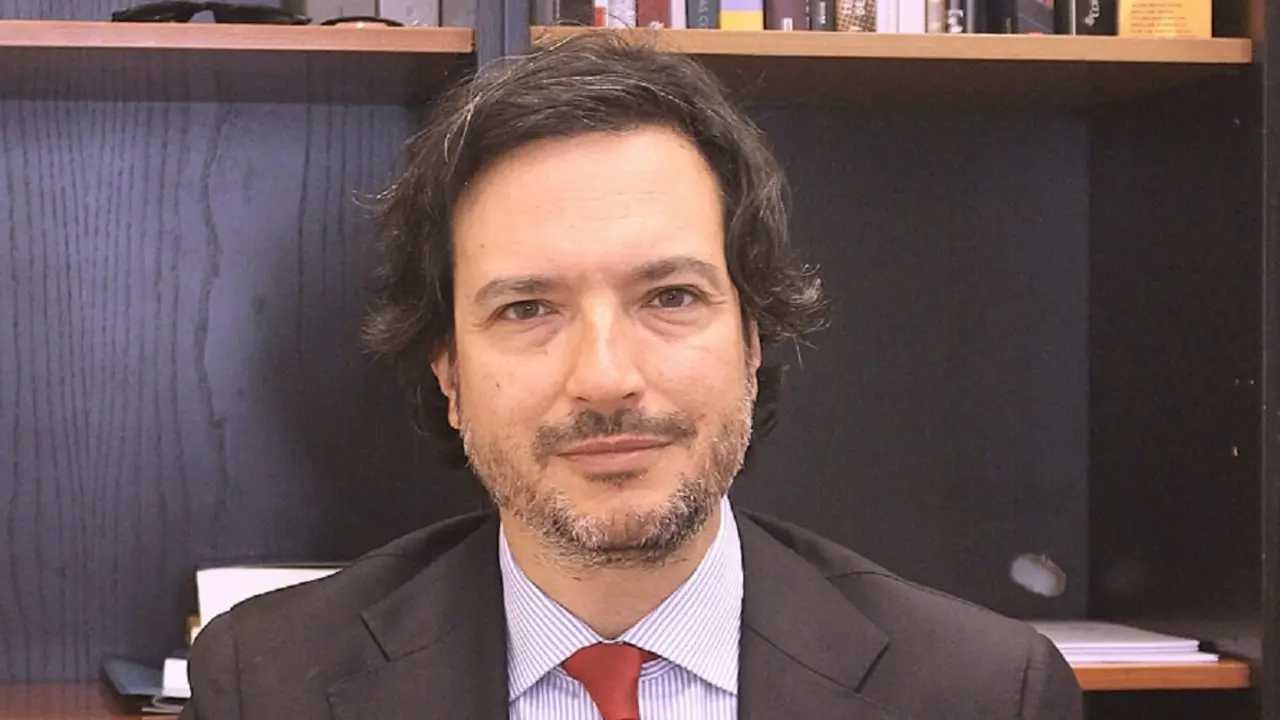Innovating in cyber security from the people

In recent years, it has become clear that we are facing an unstoppable transition. Digital transformation, digitisation and a focus on data-driven business models have become an imperative for large and medium-sized companies. The current paradigm-shifting context is causing some professions to disappear and triggering the emergence of entirely new ones. The spirit of the times seems to indicate that this change is going to happen and will be inevitable. However, for this transition to have an effective impact in the short and long term, a key ingredient is needed: innovation.
This article will serve as an introduction to contextualise a central idea that will be developed over several episodes: people as a central element in the field of cybersecurity. As a result, the importance of multidisciplinary teams in today's world and the complementary role that professionals from other disciplines, with cybersecurity training, can play in this field will be highlighted in subsequent texts.
This article will first briefly describe the ambiguous and unpredictable changing environment in which we find ourselves. In addition, some trends related to the future of work will be presented. Then some definitions of the term innovation will be presented.
Finally, some reflections on the added value that a complementary professional profile can bring to the profiles coming from the IT sector and the advantages of multidisciplinary teams will be included. All this will be developed in more depth in the next article of this series.
The second decade of the 21st century began in a totally unexpected way with a global pandemic that has accelerated multiple pre-existing trends. Different variables interact in this complex scenario: geopolitics, economics, inequality, environment and technology. It has created a very complex world to address and understand that affects us in all areas of our lives and of course also in the world of work. Work is one of the most important areas in people's lives and is currently at the beginning of a major transformation.
Just as the industrial revolution forced us to rethink the very concept of work, we are facing a very similar situation today. During the first and second industrial revolutions, the previous socio-political, economic and labour model vanished. In this context, the foundations of employment of the time were laid: people (wage earners, proletarians, owners), technologies (steam engines and industrial machinery), means of transport (railways, steamships, etc.) and processes (chain production). Out of all this came new products, a different social organisation, economic models and political ideologies. Today we find ourselves in a similar context of great changes in all the areas that underwent a major transformation in the 19th and 20th centuries.

In the following section we will look at the changes that are already happening in the world of work.
Today, we are increasingly aware of the global technological trends affecting the world of work. Robotisation, automation, digital transformation, artificial intelligence and data-driven decision making are concepts that have started to emerge in the public debate on employment in recent years.
Major consultancies, HR firms, universities, think tanks and even international organisations have been analysing trends for years to try to anticipate the future of work. All these organisations agree on one thing: major changes are going to take place and innovation will be key to being able to adapt to the work of the future. A future that is getting closer and closer.
Some of the trends about the future of work identified by Deloitte Consulting are the following:
Changes in work relationships and professional roles. In recent years, there has been a large increase in the number of professionals working on a project basis and freelancers as opposed to the traditional idea of working all your life performing the same tasks in the same company.
Changes in the workspace. The idea of working in a cubicle in a large office building is no longer attractive. Increasingly flexible working policies are allowing more or less remote working.
The International Labour Organisation (ILO) has a commission investigating the future of work and has identified major trends affecting the future of employment. These include demographics, climate change, migration, robotisation and the technology gap, and attitudes towards work.
It seems clear that in the face of this inevitable change we have to be bold and consider the situation of uncertainty as an opportunity. However, in order to adapt to this transformation in our lives and jobs, we must be flexible, able to reinvent ourselves and be willing to innovate.
Innovate What is it?
The Royal Spanish Academy defines innovation as: 1. The action and effect of innovating. 2. Creation or modification of a product and its introduction into a market.
This definition, as can be seen, is not very precise. It does not fully cover the concept of innovation, as it is not very specific in its first meaning and focuses on the result (product) in the second.
In this text, innovation is conceptualised as something that can be measured. In addition to being measurable, there is a differentiating element that is implementation, putting the new product or way of doing things into practice. The latter is what really differentiates innovation from similar concepts such as invention.

The Oslo Manual defines innovation as follows: "an innovation is a new or improved product or process (or a combination of both) that differs significantly from the unit's previous products or processes that have been made available to potential users (product) or carried out by the unit (process)". OECD/EUROSTAT (2018)
From this general definition, two different types of innovation are identified:
- Product innovation
- Business process innovation
As we have seen, innovation can be measured and to be considered as such it must be implemented, i.e. put into practice. A novel idea or invention that is not put into practice could not be considered innovation if we follow the OECD and Eurostat manual.
As mentioned in a previous article, people are the first and last line of defence in cybersecurity. People are victims, facilitators and perpetrators of cybercrime; we are creators, developers, users and owners of networks and devices, and also creators and recipients of cybersecurity policies and strategies.
People play a very important role in cybersecurity. In addition, we are a key element in innovation, as it is people who continue to hold the monopoly on innovation.
In the next article in this series, we will go into some of the competencies and skills needed to meet the new challenges in the workplace and the risks and threats that exist today. In addition, an interesting idea will be proposed: multidisciplinary cybersecurity teams to deal with a complex world. The complementary role that professionals from other disciplines (with adequate training in cybersecurity) can play in the new post-pandemic world will also be discussed.
Marcelo Ruano Serna - Graduate in Criminology and Security.
Collaborator in the Cybersecurity Area of Sec2Crime: https://www.sec2crime.com/ciberseguridad
OECD/Eurostat (2018), Oslo Manual 2018: Guidelines for Collecting, Reporting and Using Data on Innovation,4th Edition, The Measurement of Scientific, Technological and Innovation Activities, OECD








